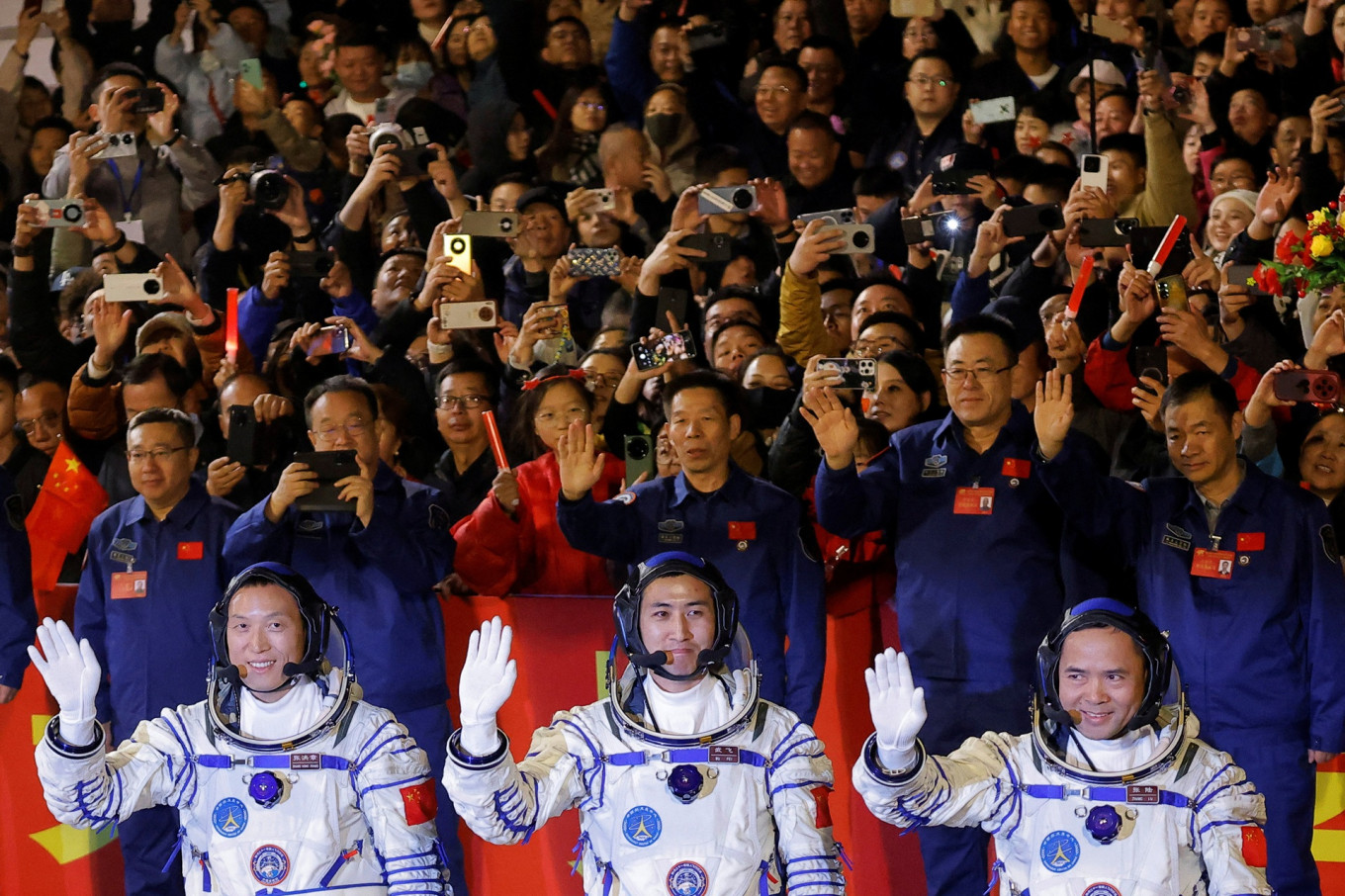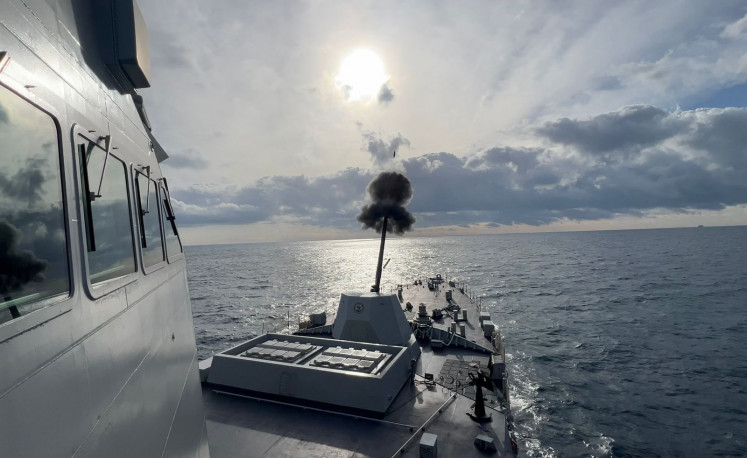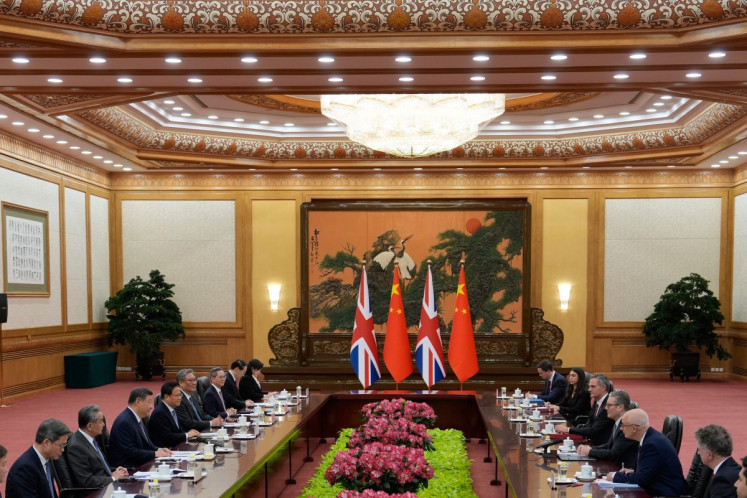Popular Reads
Top Results
Can't find what you're looking for?
View all search resultsPopular Reads
Top Results
Can't find what you're looking for?
View all search resultsChina sends its youngest astronaut to 'Heavenly Palace' space station
The Shenzhou-21 crew were also joined by four black mice, the first small mammals to be taken to the Chinese space station.
Change text size
Gift Premium Articles
to Anyone
 Astronauts Zhang Hongzhang (front, from left), Wu Fei and Zhang Lu wave during a see-off ceremony before taking part in the Shenzhou-21 spaceflight mission to China's Tiangong space station, at Jiuquan Satellite Launch Center, near Jiuquan, Gansu province, China, on Oct. 31, 2025. (Reuters/Maxim Shemetov)
Astronauts Zhang Hongzhang (front, from left), Wu Fei and Zhang Lu wave during a see-off ceremony before taking part in the Shenzhou-21 spaceflight mission to China's Tiangong space station, at Jiuquan Satellite Launch Center, near Jiuquan, Gansu province, China, on Oct. 31, 2025. (Reuters/Maxim Shemetov)
C
hina's Shenzhou-21 space rocket and its crew including the youngest member of its astronaut corps blasted off on Friday atop a Long March-2F rocket from the Jiuquan Satellite Launch Centre in northwest China, Chinese state media reported.
It was the seventh mission to the permanently inhabited Chinese space station since it was completed in 2022.
Missions on China's Shenzhou-21 spacecraft involve trios of astronauts on six-month stays in space, with veteran astronauts increasingly replaced by younger faces. First-timers Zhang Hongzhang, 39, and Wu Fei, 32 , who is also China's youngest astronaut to be sent to space, were picked to participate in the programme in 2020.
Commander Zhang Lu, 48, flew on the 2022 Shenzhou-15 mission.
The Shenzhou-21 astronauts will take over from the Shenzhou-20 crew who had lived and worked on board Tiangong, or "Heavenly Palace", for more than six months. The Shenzhou-20 astronauts will return to Earth in the coming days.
The Shenzhou-21 crew were also joined by four black mice, the first small mammals to be taken to the Chinese space station. The mice will be used in experiments on reproduction in low Earth orbit.
Biannual launches have become the norm for the Shenzhou program, which has in the past year reached new milestones with the deployment of Chinese astronauts born in the 1990s, a world-record spacewalk, and plans to train and send the first foreign astronaut, from Pakistan, to Tiangong next year.
The rapid advances have raised alarm bells in Washington, which is now racing to put a United States astronaut on the moon again before China does.
Both countries are also competing in nascent institution-building efforts, with the US-led Artemis Accords on lunar exploration matched up against the Chinese and Russian-led International Lunar Research Station.









